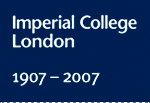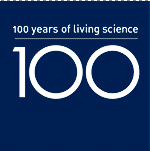Hannah Gay
(Chemistry 1958-64)
Hannah shares her memories of being mistaken for a corpse
I have written about this period in my book on the history of the college but there are many stories that I omitted. Among them are some personal ones that I remember well,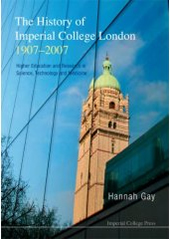 in part because they don’t reflect entirely well on me. I think we tend more easily to recall the embarrassing moments in our early lives than the good – though not exclusively. So, here are four stories I recall with mixed emotions.
in part because they don’t reflect entirely well on me. I think we tend more easily to recall the embarrassing moments in our early lives than the good – though not exclusively. So, here are four stories I recall with mixed emotions.
I was a chemistry student and once, when working in the inorganic practical laboratory, felt extremely tired, climbed on to the bench, lay down, and went to sleep. Why I decided to do such a thing rather than leave the lab escapes me. Unfortunately Professor Wilkinson chose that moment for his weekly round of the lab and I was awakened by a roar followed by a series of expletives addressed more at the poor demonstrator than at me. The demonstrator was sitting at the front of the lab and had not noticed that anything was amiss. The shelves of reagent bottles above the benches obscured his vision. Apparently Wilkinson at first thought that I was dead, perhaps poisoned, and was frightened by what he saw. But fear soon turned to anger – anger that should have been directed at me, too, but was directed at the demonstrator alone. (I have forgotten the demonstrator’s name; if he reads this, I hope he will accept my apologies). Wilkinson (Geoff, as I came to call him as a postgraduate) was always friendly but never forgot the incident. He reminded me of it years later when I asked for an interview. I was thinking of writing something about him even before coming to write the history of Imperial College. He willingly agreed to be interviewed but sadly died shortly before we had arranged to meet.
Another incident, though one of which I am a little proud, was also embarrassing in its way. When I was an undergraduate some of the male students, officials in the RCS, 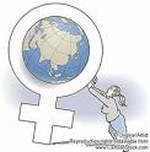 organized annual ‘Queen of Jezebel’ contests. These were basically beauty contests of the kind then typical in universities as well as in the wider culture – women parading in swim suits etc. By the late 1970s this RCS event had become farcical, with many of the contestants being men in drag. But in the late 1950s and early 1960s women students were still persuaded to enter. One year (probably 1960) the contest was won by a fellow chemistry student in my year. Amazingly we remained on good terms even though I had protested the event by parading outside with a sandwich board carrying the words ‘Stop the Cattle Market’ in large letters. I was ridiculed and called names but also had a fair bit of support from other students, including some men, who shared my proto-feminist sensibilities.
organized annual ‘Queen of Jezebel’ contests. These were basically beauty contests of the kind then typical in universities as well as in the wider culture – women parading in swim suits etc. By the late 1970s this RCS event had become farcical, with many of the contestants being men in drag. But in the late 1950s and early 1960s women students were still persuaded to enter. One year (probably 1960) the contest was won by a fellow chemistry student in my year. Amazingly we remained on good terms even though I had protested the event by parading outside with a sandwich board carrying the words ‘Stop the Cattle Market’ in large letters. I was ridiculed and called names but also had a fair bit of support from other students, including some men, who shared my proto-feminist sensibilities.
When I was a research student I built a vacuum line and used liquid nitrogen to keep part of the line as a cold trap. The liquid nitrogen had to be fetched from the far end of 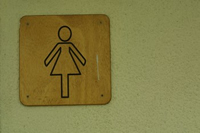 the building and was carried back in Dewar flasks. On one occasion I made a stop in the women’s lavatory and placed the flask on the floor of the cubicle. For some reason this caused the flask to crack. There was a loud bang and all the liquid nitrogen flowed out under the cubicle door and into the common area. The result was billowing white clouds throughout the room. I got out unscathed but two cleaning women who were standing by the washbasins were very frightened and thought that a bomb had gone off. They ran from the room screaming at the tops of their voices so attention was drawn to what was really a minor incident – but, for me, it was another embarrassing moment.
the building and was carried back in Dewar flasks. On one occasion I made a stop in the women’s lavatory and placed the flask on the floor of the cubicle. For some reason this caused the flask to crack. There was a loud bang and all the liquid nitrogen flowed out under the cubicle door and into the common area. The result was billowing white clouds throughout the room. I got out unscathed but two cleaning women who were standing by the washbasins were very frightened and thought that a bomb had gone off. They ran from the room screaming at the tops of their voices so attention was drawn to what was really a minor incident – but, for me, it was another embarrassing moment.
As a postgraduate I worked in Dennis Evans’ lab together with John Maher. Dennis was a quiet man but a colourful character nonetheless. He inherited me after my supervisor, Ron Mason, moved to a chair at Sheffield. Dennis was a brilliant chemist, but some of the experiments he carried out scared me – something else I found mildly embarrassing at the time. With hindsight I know that I was justifiably scared. Indeed, some of the experiments Dennis directed me to undertake were dangerous. For example, recording the phosphorescence spectra of aromatic hydrocarbons held under pressure with oxygen. The chemicals were enclosed in cells supposedly able to withstand the pressure, but I was never confident of this. Dennis had earlier narrowly escaped major injury when one of the cells failed. The stress of this work may have been part of the reason behind my eventual move from chemistry to the calmer shores of history of science – though family and intellectual considerations were, in the end, the deciding factors. I have never regretted the move. Ending my professional career by writing the history of Imperial College has been a privilege.
To order a copy of Hannah Gay's Book: The History of Imperial College London 1907 -2007 please click here
© 2007 Imperial College London
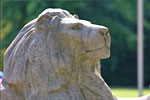
Through the first decade of the twenty-first century the campaign seeks to philanthropically raise £207 million from Imperial’s alumni, staff and friends, and donations from charitable foundations and industry.
Where your support can make a differenceGive now
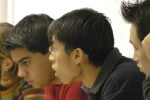
Imperial’s Centenary Year provides an opportunity to recognise and celebrate members of the Imperial community.
View staff and student portraits